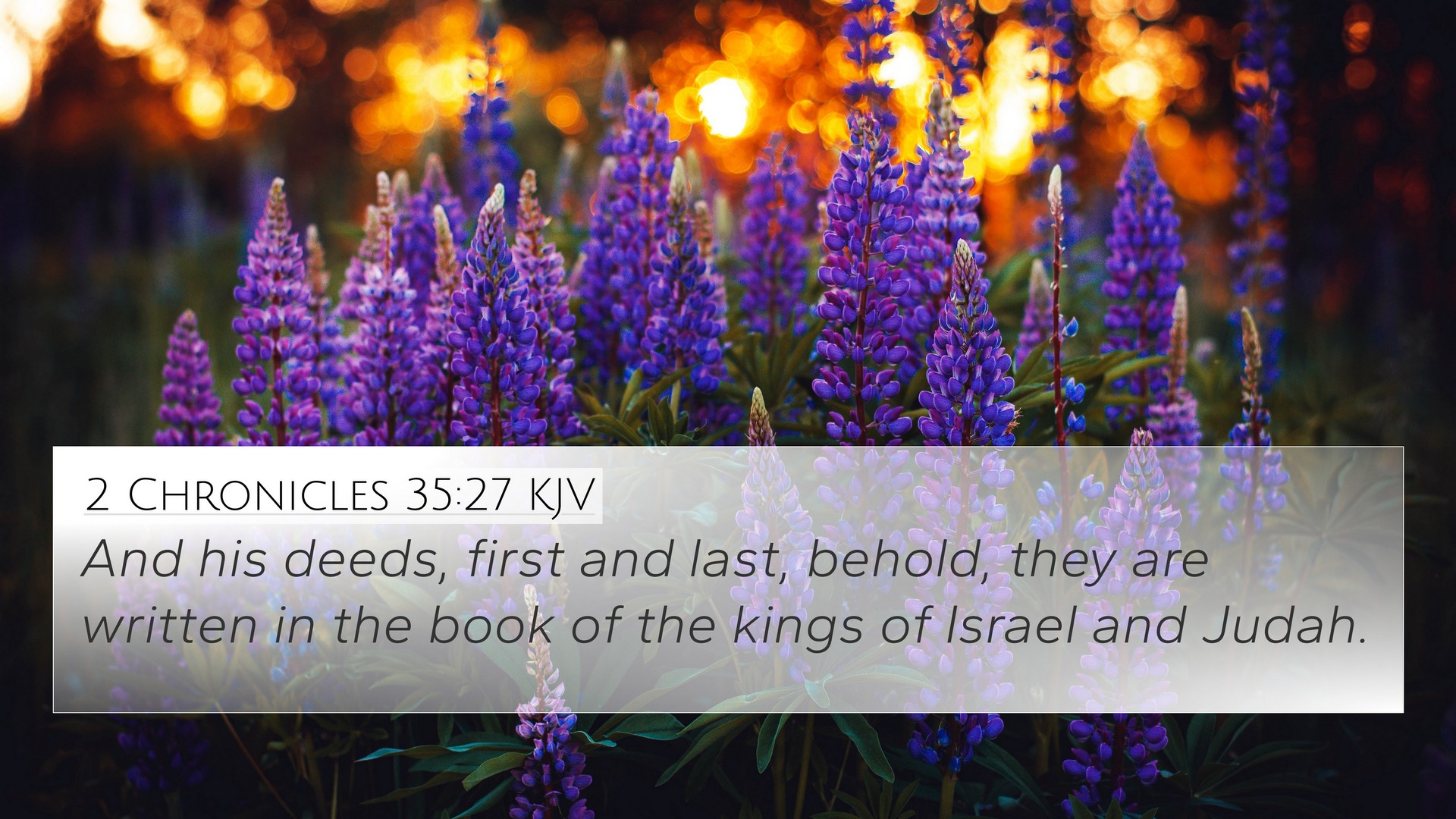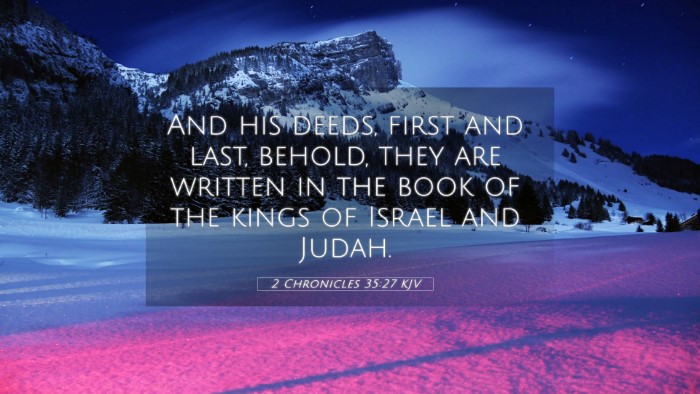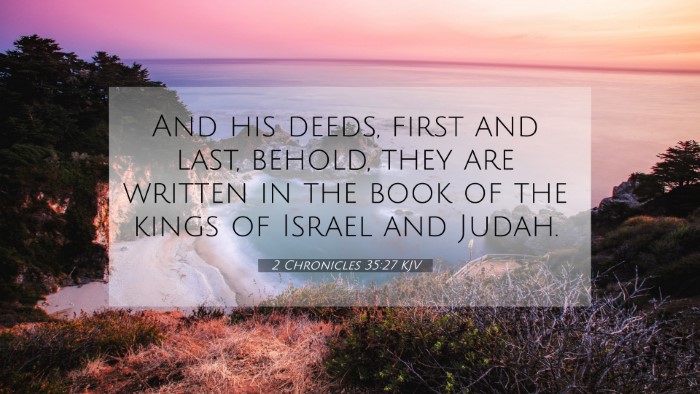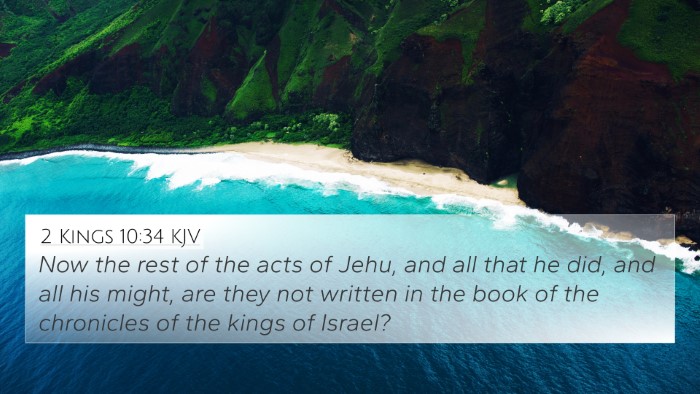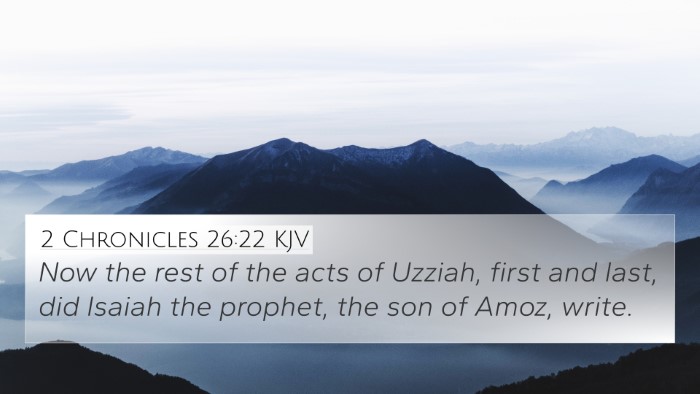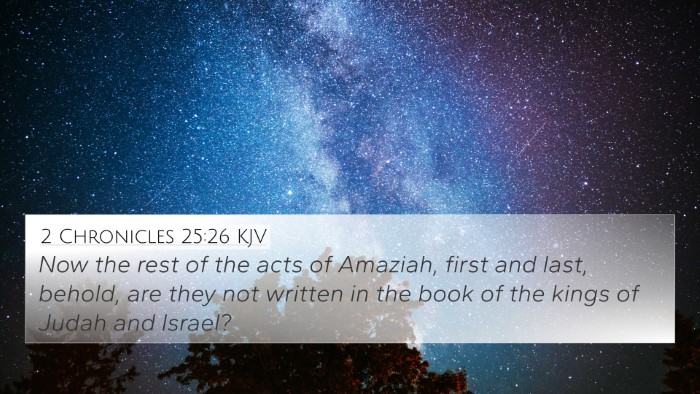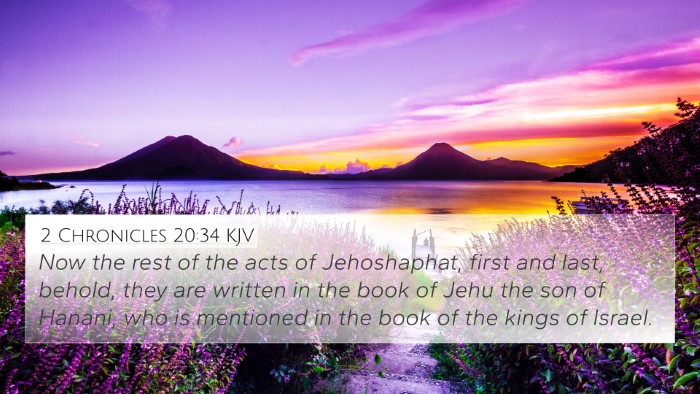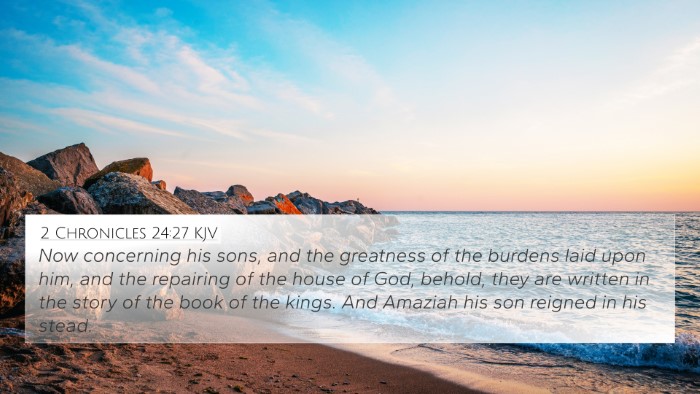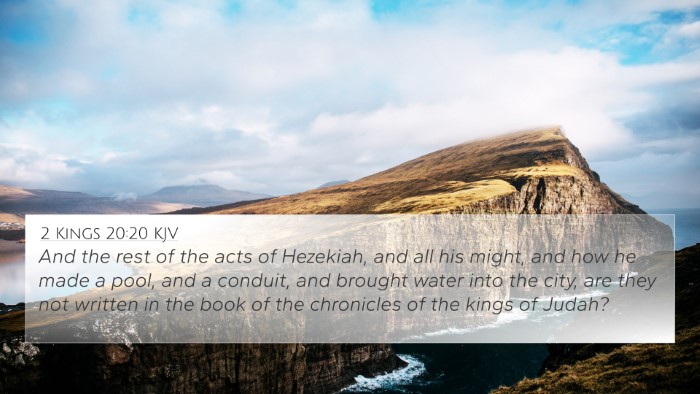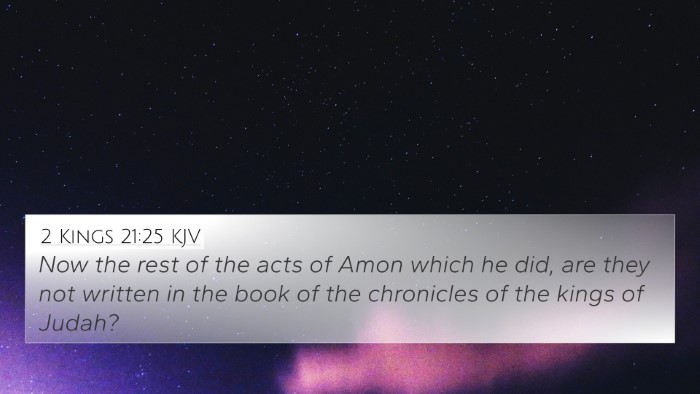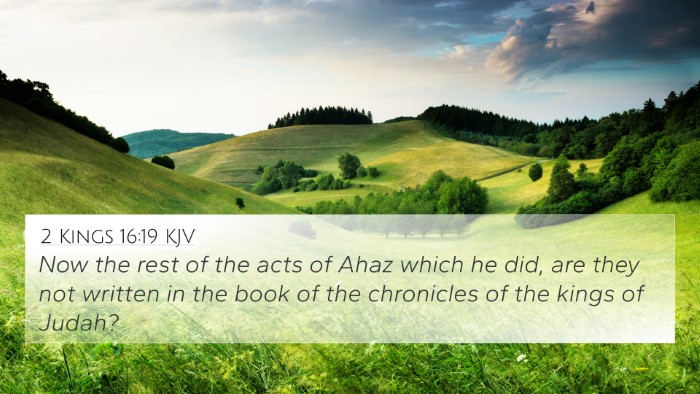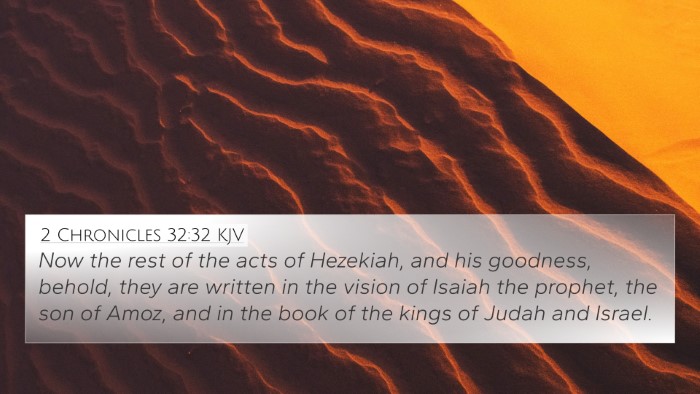Understanding 2 Chronicles 35:27
Verse Text: "And his deeds, first and last, behold, they are written in the book of the kings of Israel and Judah."
This verse serves as a concluding statement about King Josiah, highlighting his actions and the documentation of his reign within the broader historical narrative of Israel and Judah. The emphasis on the 'deeds" indicates that both good and evil acts are recorded, inviting readers to reflect on the moral implications of a king's legacy.
Verse Summary
- Historical Context: King Josiah is noted for his significant reforms and faithfulness to God, which have been chronicled in the Scriptures.
- Moral Reflection: The deeds mentioned suggest accountability for actions and a legacy left behind, relevant for both leaders and followers in faith.
- Divine Authority: The reference to the written records emphasizes God's sovereignty in recording human history and deeds.
Commentary Insights
Matthew Henry's Commentary: Henry emphasizes that Josiah's life exemplifies righteousness and that his good works outshine his failures. His deeds, notably the fantastic reforms in Judea, are indicative of a leader striving to follow God perfectly. The reference to deeds being noted in the "book" also serves as a warning of divine accountability.
Albert Barnes' Notes: Barnes points out that the mention of the “book of the kings” indicates a historical record that serves not just as a narrative but also a moral compass for future generations. The continual link between past and present actions showcases the importance of remembering one’s heritage and the spiritual mantle borne by succeeding generations.
Adam Clarke's Commentary: Clarke explains that the “first and last” deeds refer to the beginning and end of Josiah's reign. His concluding actions, especially his notable Passover celebration, are triumphant reflections of his faithfulness, contrasting with the decline that follows after his death.
Key Themes and Connections
- Legacy of Leadership: This verse encourages reflection on how one's life will be remembered, reminiscent of 2 Kings 22:2, where Josiah's righteous reign is noted.
- Faithfulness to God's Word: Josiah's reforms echo throughout Deuteronomy 17:18-20, relating to the law's significance for kings.
- Historical Validation: The mention of written records connects with 1 Chronicles 29:29, affirming the integrity of historical accounts of rulers.
- Divine Providence: The overarching theme of God's sovereignty is reinforced in Proverbs 16:9, illustrating the interplay between human action and divine direction.
- Judgment and Accountability: The essence of being accountable for one’s deeds parallels Romans 14:12, highlighting that every individual shall give account to God.
- The Role of Remembrance: The act of remembering and learning from past leaders aligns with Philippians 3:17 as it encourages believers to emulate those who walk closely with God.
- The Nature of Historical Accounts: This concept of maintaining records is examined in Revelation 20:12, where the books are opened for divine judgment.
- Impact of Good Leadership: The positive influence of a godly leader echoes through 1 Timothy 4:12, emphasizing the necessity for youth to live exemplary lives.
Conclusion
In conclusion, 2 Chronicles 35:27 provides a reflective summation of King Josiah's reign, serving as a reminder of the importance of legacy, integrity, and fidelity to God's commands. Through the tools of biblical cross-referencing and analysis, readers can deepen their understanding of the interconnectedness of scripture, exploring the rich tapestry of God’s plan as revealed through the lives of His people.
As we study this verse, let us consider how it relates to our lives today, encouraging us to appraise our deeds and their lasting impact. The use of historical records in the Bible not only affirms the past but offers a guiding narrative that conveys the significance of living in accordance with divine principles.
